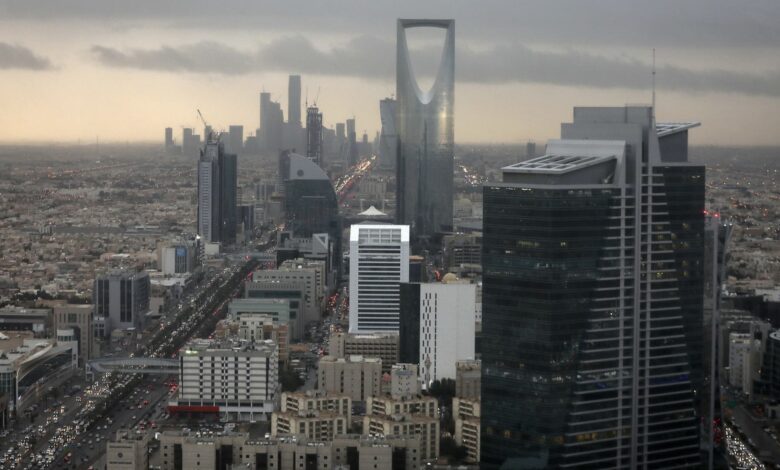Saudi Arabia’s first alcohol store aims to tackle booze smuggling

Saudi Arabia’s first alcohol store has opened in the diplomatic quarter of its capital Riyadh, accessible to non-Muslim diplomats.
While it only affects a select group, it’s a big change for the highly conservative Muslim kingdom, where alcohol has been banned since 1952 after a Saudi prince murdered a British diplomat in a drunken rage. Drinking is also forbidden under Islam, and most of Saudi Arabia’s local population is religiously observant.
That hasn’t stopped alcohol from flowing into the kingdom over the years — it just happened behind closed doors.
Foreign embassies are able to import alcohol under specified agreements with the Saudi government, while some have snuck booze into the kingdom in secure “diplomatic pouches” that can’t be inspected.
From there, bottles are often sold on the black market at huge markups, according to expat and local residents of the country. All those who spoke to CNBC did so on condition of anonymity due to the sensitivity of the topic.
“Everyone knows which embassies sell booze … some of them have made a whole side business out of it, selling on the black market at four, five, even ten times the normal price. It’s gotten ridiculous. The government had to do something,” one Saudi investor based between Dubai in the United Arab Emirates and Riyadh told CNBC.
A one-liter bottle of vodka, for instance, typically costs between $500 and $600 on the black market, sources said, while they described a single bottle of Johnnie Walker Blue Label going for between $1,000 and $2,000. At-home booze making has also taken place in the kingdom for decades, according to expats who’ve previously lived there.
The Kingdom Tower, operated by Kingdom Holding Co., centre, stands on the skyline above the King Fahd highway in Riyadh, Saudi Arabia.
Simon Dawson | Bloomberg | Getty Images
The new shop in Riyadh comes with strict rules: authorization for entry and shopping must be validated through an app called Diplo and approved by the Saudi Foreign Ministry, and purchases are subject to a monthly quota system per registered individual.
The new tracked purchasing system is “to deal with the smuggling problem that we’ve always had with diplomats,” one Saudi consultant said. Another Saudi business owner based in the kingdom’s eastern Khobar region told CNBC: “The government learned that a lot of alcohol is moving from the allocated quantities allowed for embassies to the black market. … Now this app is put in place where they will be getting their allocated quantity with monitoring from a centralized place.”

Indeed, the Saudi government confirmed that the regulation of alcohol quotas for diplomatic missions was being put in place to “counter the illicit trade of alcohol goods,” the country’s Center of International Communication said in a statement cited by CNN.
The Saudi Foreign Ministry and CIC have not responded to CNBC requests for comment.
Expats have often gone to lengths to get liquor into the dry kingdom; one former British diplomat recounted receiving bottles of whiskey stored inside an imported grand piano, while another described the moment that a company shipping his furniture told him, “Sir, your couch is leaking.”
Saudi Arabia imposes severe penalties on those caught drinking or selling alcohol, ranging from fines or lashes to deportations and jail time.
Read more CNBC news on Saudi Arabia
Still, many in the kingdom say that the legalization of drinking outside of diplomatic venues is just a matter of time, though it will likely be limited to hotels or special economic zones and kept off-limits to Muslims. Several high-end restaurants in Riyadh and Jeddah are already kitted out with fully equipped bars, currently used for making elaborate nonalcoholic mocktails.
Saudi Arabia has undergone seismic change both socially and economically in the years since the young Crown Prince Mohammed bin Salman, now the kingdom’s de-facto ruler, came to power.
His Vision 2030 campaign is a multitrillion-dollar endeavor to remake the Gulf country’s image, attract tourism and diversify its economy away from oil. It also aims to create new jobs for the booming Saudi youth population, 70% of which is under the age of 30.
The kingdom has seen a series of liberalizing reforms implemented since Crown Prince Mohammed came to power, allowing previously banned things like women driving, movie theaters and music festivals.
But alcohol in Saudi Arabia has always been a taboo subject — while the country’s leadership wants to modernize it and bring in more tourism and foreign investors, it also has to keep from upsetting its domestic population, most of which is deeply religious.
Source link



